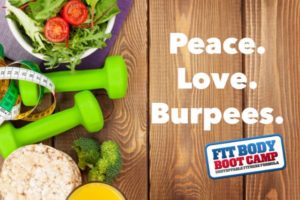Protein and Calcium are two of the essential nutrients needed for a healthy life. But where do they come from and how do you know if you’re eating enough? Or even too much?
Today we’re going to go over high-protein diets, the effects of overeating protein-rich foods, calcium deficiencies, and great sources of calcium for your daily diet. Protein and calcium work together closely, so you need to make sure you’re eating the right amounts of both of them.
Protein
Called the building blocks of life, your body needs protein to function. The amino acids that make up protein are used to form muscles, skin, internal organs, hair, and nails. Protein carries oxygen and nutrients in cells, increases immunity, aids digestion, and neutralizes acidity in your blood. Despite all the good protein does for you, you can have too much of it. So, before living off of steak, eggs, and bacon, here’s what you should know about increasing your protein intake.
Protein and Weight Loss
 Yes, you can expect to shed pounds on a high-protein diet. Several qualities of protein are known to contribute to weight loss. For one, most high-protein foods are high in fat. Yes, fats, but don’t get nervous. Fat sources fill you up faster and longer than empty carbs. By taming your hunger with protein, you don’t have to eat as much or as often. Protein stays in your stomach for longer because it takes your body longer to digest and because the body has to work harder to metabolize and utilize it.
Yes, you can expect to shed pounds on a high-protein diet. Several qualities of protein are known to contribute to weight loss. For one, most high-protein foods are high in fat. Yes, fats, but don’t get nervous. Fat sources fill you up faster and longer than empty carbs. By taming your hunger with protein, you don’t have to eat as much or as often. Protein stays in your stomach for longer because it takes your body longer to digest and because the body has to work harder to metabolize and utilize it.
Because protein builds muscle, a high-protein diet helps ensure your weight loss is fat loss and not muscle loss (we’ve talked about how this can happen if you  especially rich in calcium, a nutrient that’s stored in your teeth and bones to keep them strong. When you’re young calcium strengthens your bones, and as you age it maintains bone mass to help prevent osteoporosis. It also regulates muscle contractions so you can move, aids in blood clotting, keeps blood flowing through your vessels, and plays an important role in the release of enzymes and hormones.
especially rich in calcium, a nutrient that’s stored in your teeth and bones to keep them strong. When you’re young calcium strengthens your bones, and as you age it maintains bone mass to help prevent osteoporosis. It also regulates muscle contractions so you can move, aids in blood clotting, keeps blood flowing through your vessels, and plays an important role in the release of enzymes and hormones.
Calcium and Weight Loss
There’s strong evidence that diets high in calcium are associated with reduced rates of obesity. So not only does calcium keep your bones strong and make it easier for your muscles to work out, but it also helps with weight loss! People with high dairy intake diets tend to gain much less weight later in life. However, for this to work it must be done in tandem with a lower calorie diet, so don’t think drinking a bunch of milk will make you lose weight.
The more calcium there is in a fat cell, the more fat the cell will burn, which causes greater weight loss. So, when combining calcium and protein you’re able to consume more healthy fats and calcium will help burn that fat off during exercise.
Calcium stores must be constantly replenished, otherwise your body will take calcium from your bones. Milk and other dairy products like cheese and yogurt are some of the best sources of calcium and should be included as part of a balanced diet, but they aren’t the only way to get this vital nutrient. So if you’re lactose intolerant, don’t worry, we’ve got some calcium-rich foods for you to keep in mind.
Sources of Calcium
Here are a few great options for calcium-rich meals:
Leafy green vegetables like kale, turnip greens, arugula, bok choy, watercress, spinach, and collard greens are rich in calcium and antioxidants. A cup of collards provide 84mg of calcium and a cup of cooked collards give you 268mg. That’s 27% of your daily intake of calcium!
Add white beans to soups, pastas, or salads, or eat them as a side dish. They’re high in fiber, iron, protein, and are great sources of calcium. A cup of canned white beans contains 191mg of calcium, which is nearly 20% of what you need in any given day.
Here’s something for your sweet tooth: figs! A snack of just five medium-sized fresh figs gives you 90mg of calcium. You can also add them to smoothies, eat them dried, or spread fig jam on your toast.
A handful of almonds can quickly boost your daily amount of calcium. A quarter cup provides 72mg of calcium, while filling you with iron, potassium, magnesium, and fiber at the same time. So the next time you’re craving a snack, try some almonds.
Canned fish such as sardines, salmon, anchovies, and shrimp contain a descent amount of calcium along with omega-3 fatty acids. One ounce of canned sardines in oil with its bones contains 107mg of calcium. To get the calcium, you have to mash the bones up along with the fish meat and eat it all together.
The Bottom Line
Implementing a high-protein and high-calcium diet are sure ways to ensure weight loss and healthy muscles growth. Be sure not to overdue it on the protein and that your calcium intake stays consistent, otherwise you may find yourself with weak bones, which are not conducive to a good workout routine.


